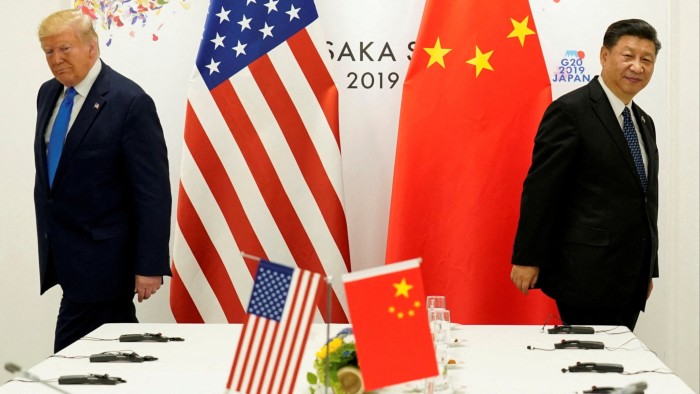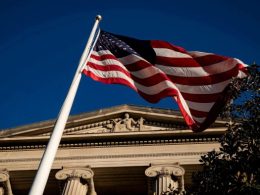Unlock the White House Watch newsletter for free
Your guide to what the 2024 US election means for Washington and the world
The writer is a professor at Georgetown University and a senior adviser with The Asia Group. He served on the US National Security Council staff from 2009-2015
No one knows what the future holds for US-China ties, maybe not even Donald Trump himself. The president-elect’s views on China are myriad and contradictory. There is the Xi Jinping-loving Trump who wants to do big deals with strong leaders. And there is Trump the strategic competitor who felt cheated by China on Covid and the bilateral trade deal. He also knows that being tough on China is reliably great politics. Will Trump the dealmaker or Trump the competitor step forward? Likely both.
Perhaps the biggest variable will be whether Trump himself runs China policy or lets his advisers take control. During the first few years of his first term, Trump was laser focused on the Phase One trade deal and enthusiastically used tariffs as leverage. His advisers, on the other hand, a mix of economic nationalists and national security hawks, pushed economic decoupling, tech restrictions and strategic competition. In his final year, feeling wronged over Covid, Trump let his advisers loose, especially by embracing Taiwan.
For Trump 2.0, the most fervent nationalists and most strident hawks will return — and feel empowered. The likely next secretary of state, Marco Rubio, and next national security adviser Mike Waltz are both determined hardliners who see China as an existential threat. At the same time, business leaders deeply invested in China like Elon Musk will also be in the mix. As we know from his first term, who talks with Trump most often and who is in the room with him last will be key.
Perhaps the one thing we can predict is that the range of possible outcomes for US-China relations is wider than ever before. There are credible scenarios for both a big deal — a grand bargain on economic or security issues — or a big fall, as relations deteriorate into a deep freeze or even military confrontation.
Three issues will be key to watch. On trade, tariffs will be in the mix early and often. Trump has promised to impose up to 60 per cent tariffs on Chinese imports, and we should expect that. These could either be a negotiating tactic or an attempt to hurt China at a time when exports are a key source of growth. Trump’s advisers will use tariffs to push economic decoupling.
How will Beijing respond? Will it be restrained and search for a deal or will it focus on tough retaliation? China’s weak economy would not welcome an all-out trade war, but Xi is a determined nationalist and has built an impressive anti-coercion toolkit designed to impose costs on the US economy. A trade war could go very badly, very quickly for Washington, Beijing and the world.
On Taiwan, the distribution of possibilities is unnervingly wide. Following Russia’s full-scale invasion of Ukraine, Taiwan is now a global issue. Yet, Trump remains sceptical of Taiwan’s importance to US interests. For him, it may be a bargaining chip. Beijing likely sees Trump’s election as a golden opportunity to get the US to abandon Taiwan — for the right price.
By contrast, many of Trump’s advisers will want Washington to embrace Taiwan and adopt a pro-independence posture. Trump may agree to this but as a tactic to improve his negotiating leverage in trade talks. Either move could quickly trigger a crisis with Beijing at a time when Xi has told his military to be ready for a conflict. It remains unclear whether a Maga-Republican Congress would — or could — constrain him.
And on strategic competition, Trump lacks the ideological focus and fervour of his advisers, some of whom advocate regime change. As before, Trump will not stop them as long as their actions don’t disrupt dealmaking or make him look bad.
This commitment to competition may manifest in a bevy of new export controls against an expanding number of Chinese industries. Trump 2.0 will likely impose a more expansive and costly regime of tech restrictions, not limited by any commercial realities. A hard and fast tech decoupling may be in the near future.
Amid these diverse outcomes, there are two certainties. First, relations will deteriorate, perhaps precipitously. The structural drivers of competition are expanding, intensifying and diversifying. The newly empowered Trump team will be brash and unpredictable.
Second, China will seize the opportunity to position itself as the defender of globalisation and multilateralism as Trump alienates the world with protectionism, isolationism and bombast.
China failed to take advantage of the global discontent with America during Trump’s first term. It will not make the same mistake again.
Source link









